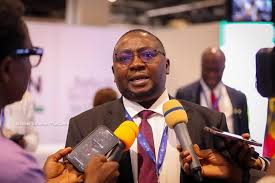
Prepare for cost-reflective pricing - minister tells Nigerians
Nigerians should prepare for cost-reflective tariffs, according to Minister of Power Adebayo Adelabu, who stated that the country's economy can no longer support electricity subsidies.
‘’We have to understand that our economy cannot sustain subsidies indefinitely,” Adelabu pointed out at a meeting with the Chairmen of Generating Companies of Nigeria (GenCos) in Abuja.
However, he reiterated the government's commitment to offering targeted subsidies to Nigerians who are economically disadvantaged.
The Nigerians who fall under the category of "economically disadvantaged" were not explained by him.
Over N4 trillion in backlog subsidy payments are currently owed by the Federal Government to Generating Companies (Gencos).
According to the Nigerian Electricity Regulatory Commission's (NERC) February DisCos Performance report, consumers pay N88.2kwh, but the average actual rate is N116.18kwh.
The cost of the subsidy per kWh in February was N27.97, which is the difference between the actual rate and average collection.
With the exception of 15%, or Band A, all NESI customers are eligible for subsidies.
According to Mr. Bolaji Tunji, Adelabu's spokesperson, the minister told the GenCos: People must pay the right amount for the energy they use. Nigerians who are economically disadvantaged will continue to receive targeted subsidies from the Federal Government.
Adelabu said that the Federal Government was committed to using cash and financial instruments like promissory notes to erase a significant portion of the N4 trillion debt that is impairing the nation's power generation.
He stated that this would be suggested during a scheduled meeting between the leadership of GenCos and President Bola Ahmed Tinubu.
"A significant portion of the debt must be paid in cash," he stated. Let's at least make a sizable payment and then request a promissory note debt instrument to cover the remaining balance.
“We recognise the urgency of this matter. The government is committed to resolving this debt to stabilise the sector and prevent further crisis.”
Col. Sani Bello (retd.), the chairman of Mainstream Energy Solutions, had earlier raised the alarm about the sector's difficulties and pointed to the N4 trillion debt as a serious threat to their business operations. Bello led his colleagues to the meeting.
Bello cautioned that the GenCos were unable to maintain infrastructure or obtain loans due to liquidity issues.
"The entire electricity ecosystem might collapse without rapid intervention," he continued.
Bello's words were echoed by Kola Adesina, chairman of Egbin Power and First Independent Power Limited.
"This is a national emergency," he declared. Everything, including houses, hospitals, and enterprises, depends on power. We cannot afford to allow the industry to collapse.
Dr. Joy Ogaji, CEO of the Association of Power Generating Companies (GenCos), highlighted chronic payment as one of the issues hurting GenCos.
Dr. Joy Ogaji, the CEO of the Association of Power Generating Companies (GenCos), stated that persistent payment defaults, unpredictable gas supplies, and fluctuations in foreign exchange rates are among the issues that threaten GenCos.
Ogaji pointed out that maintenance budgets and loan repayments had become absurd due to the naira's decline from N157/$1 in 2013 to N1,600/$1 today.
"GenCos have remained patriotic while taking unsustainable risks, like as grid breakdowns and ineffective taxation," she said.





